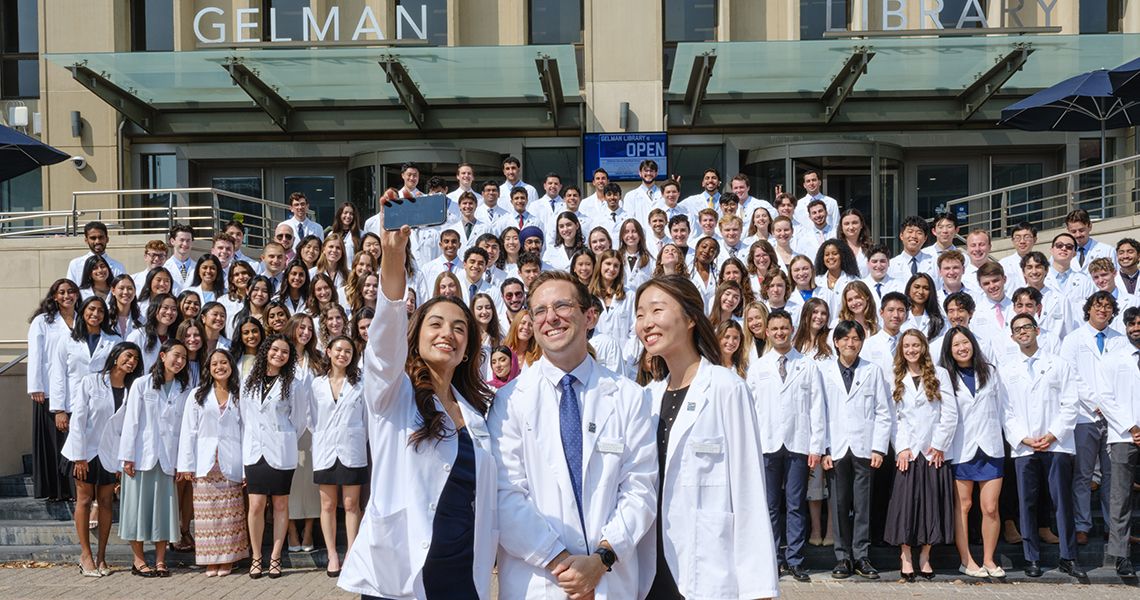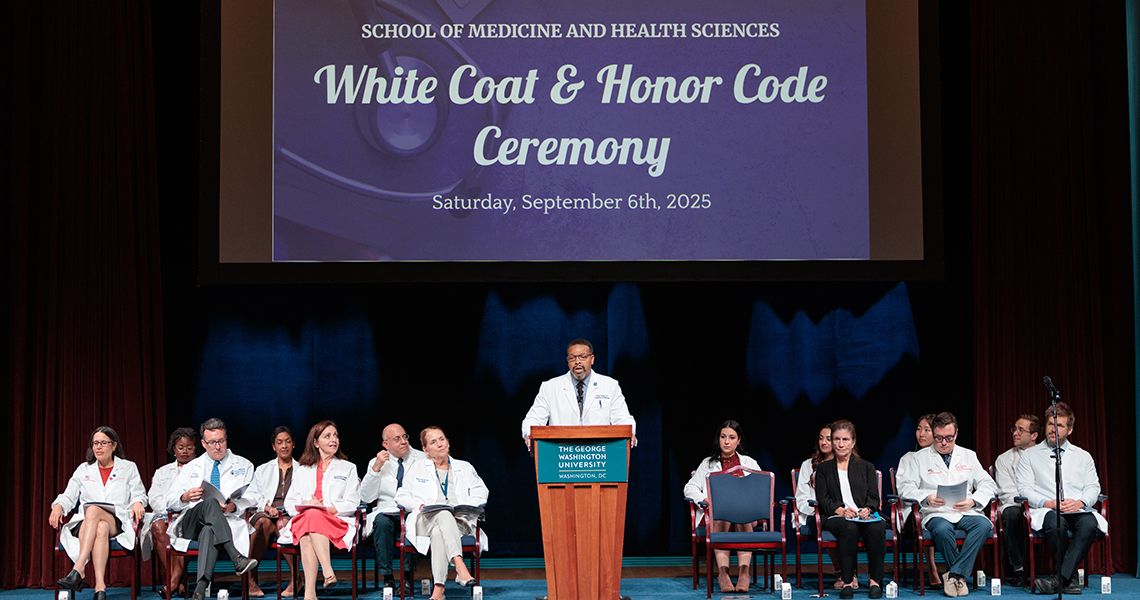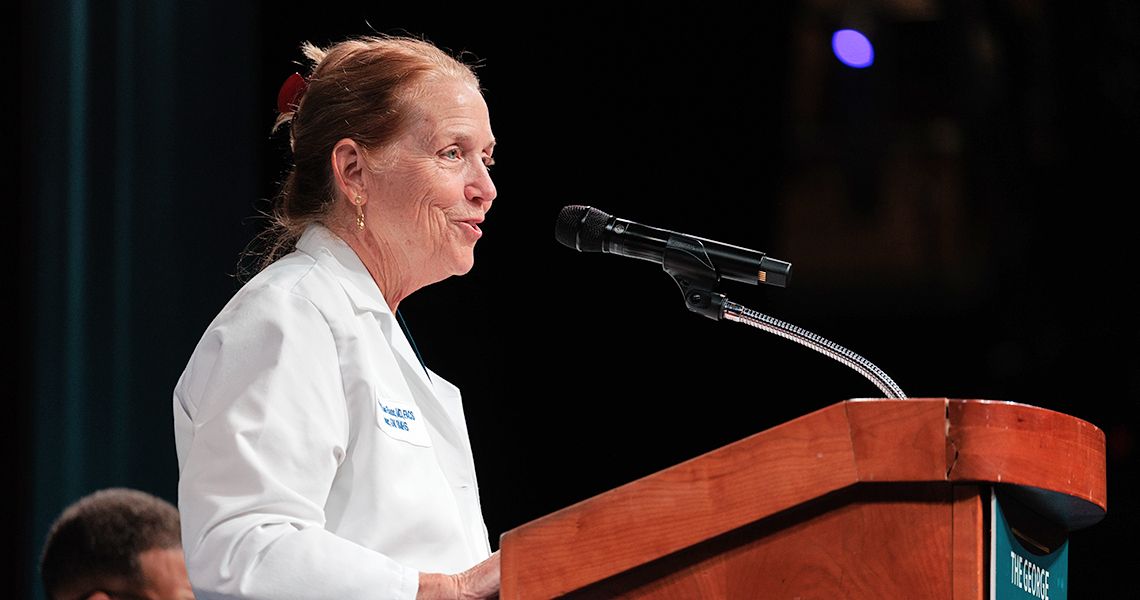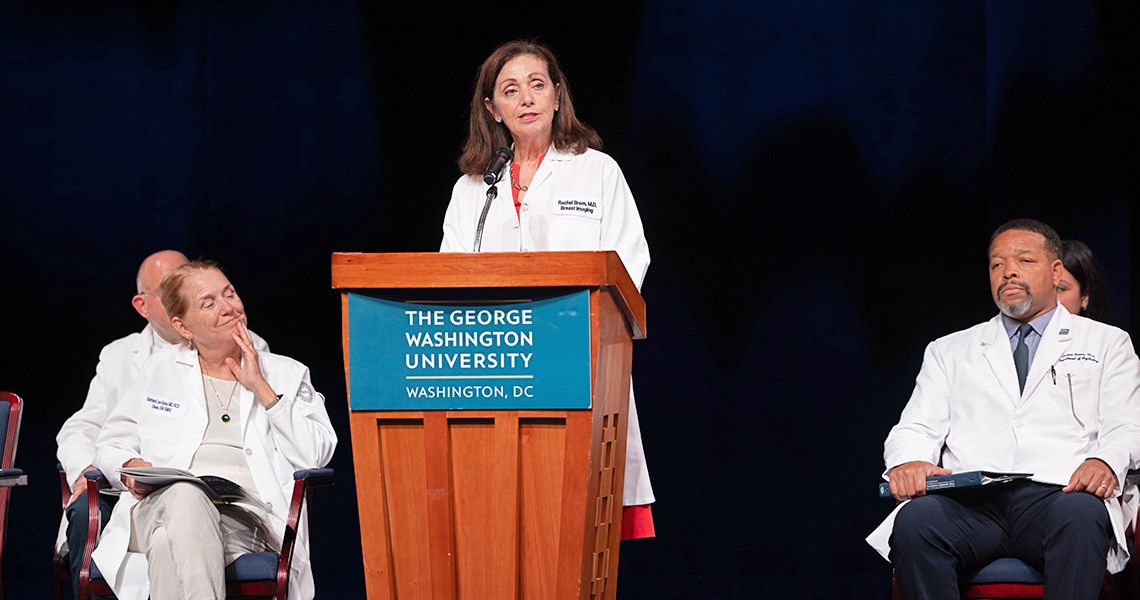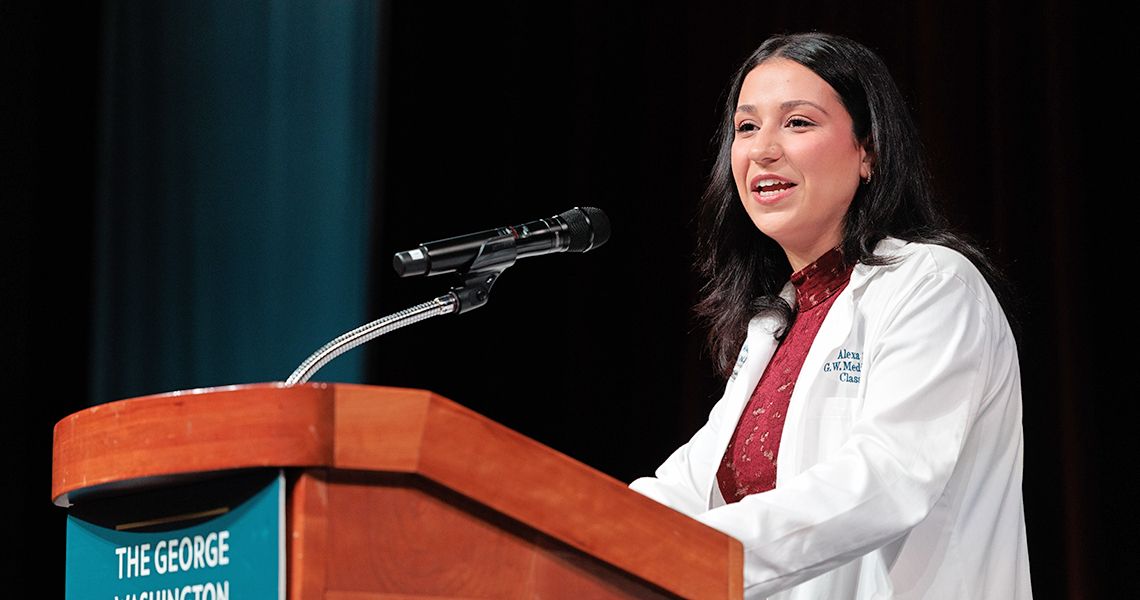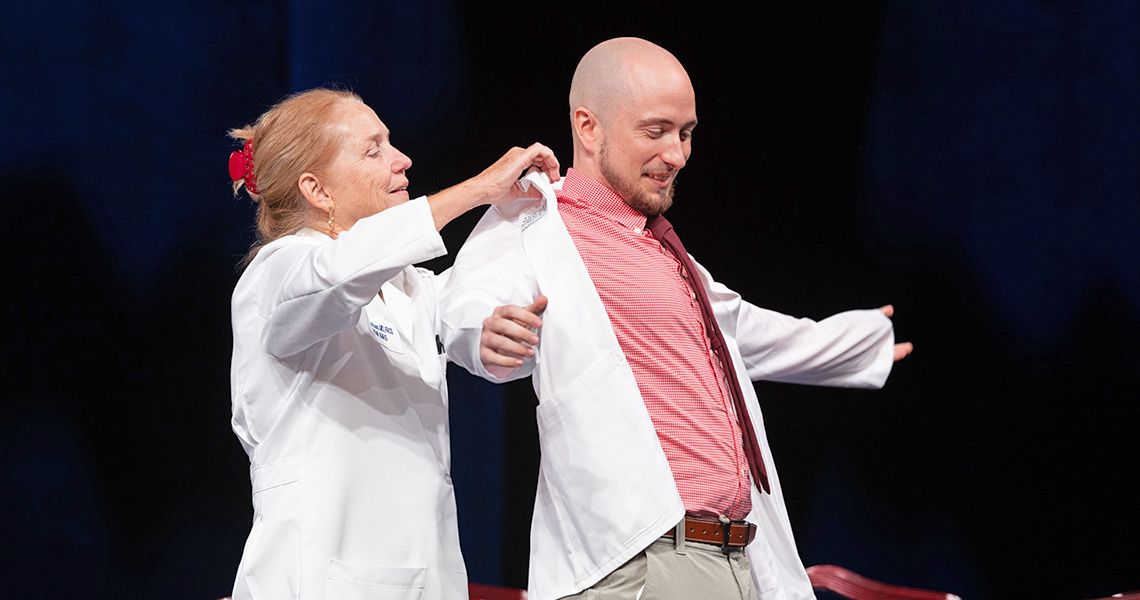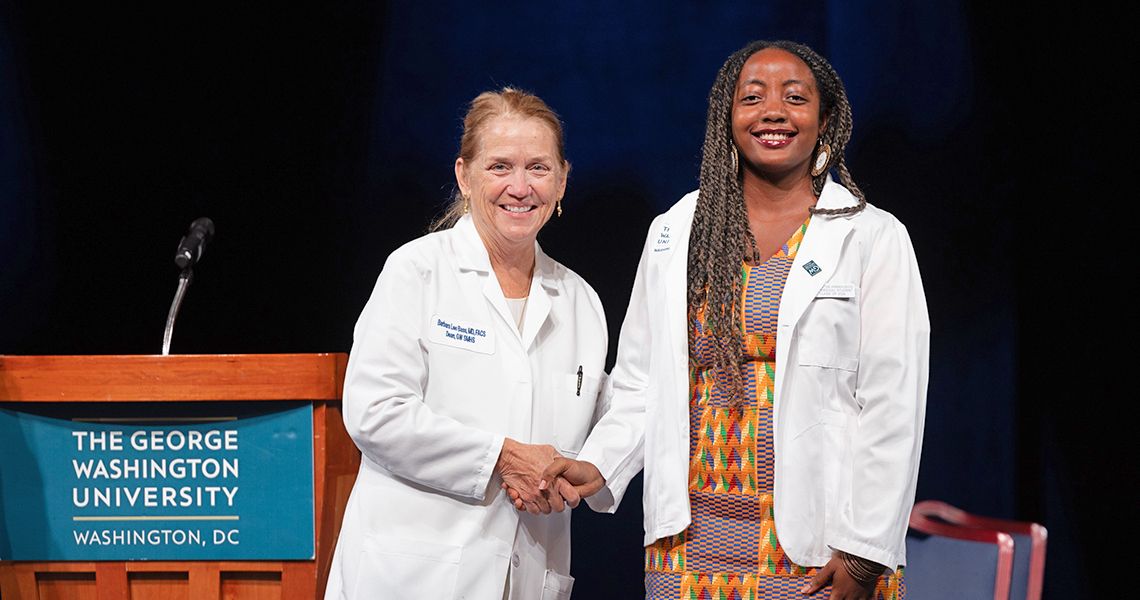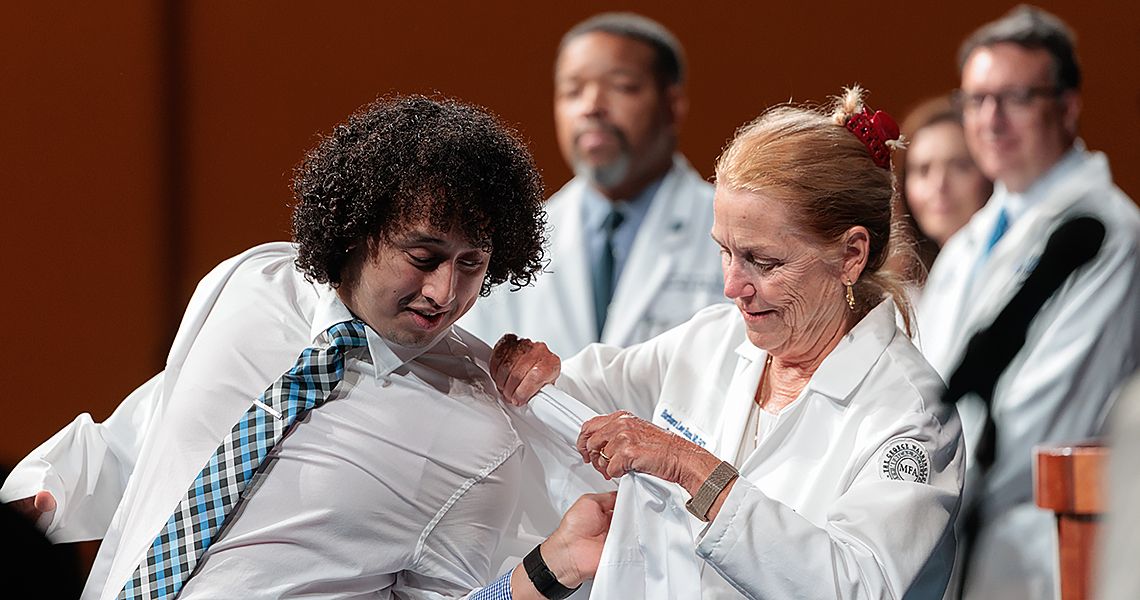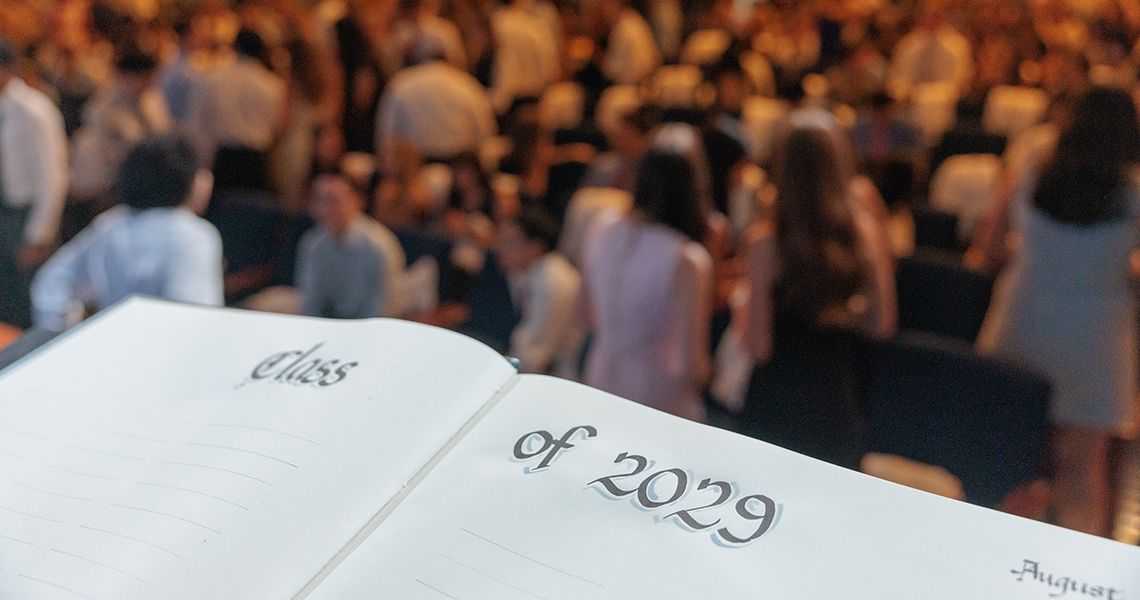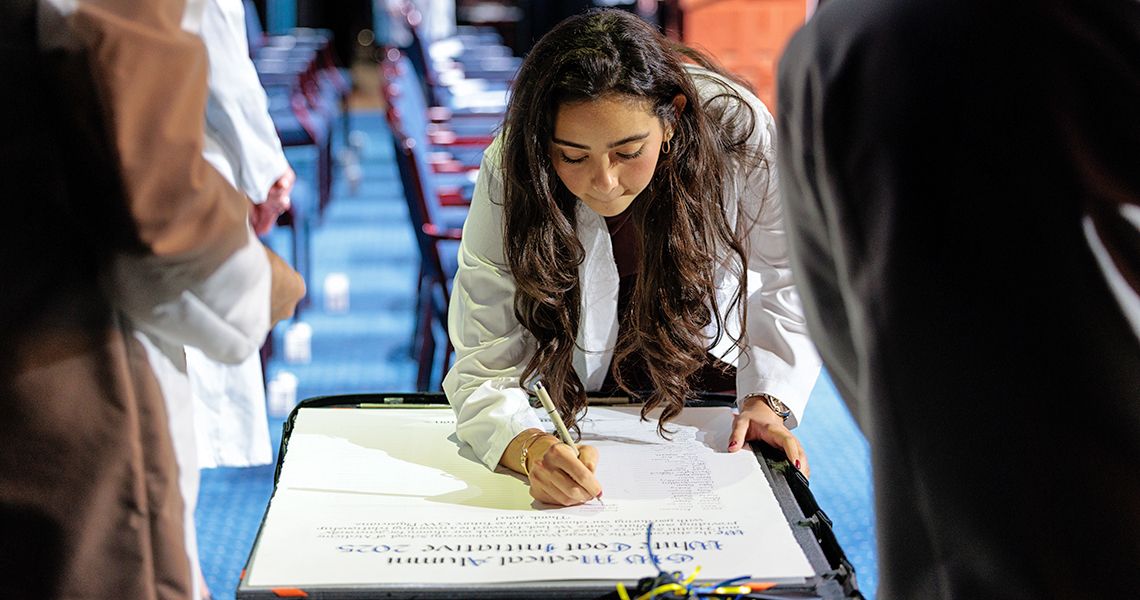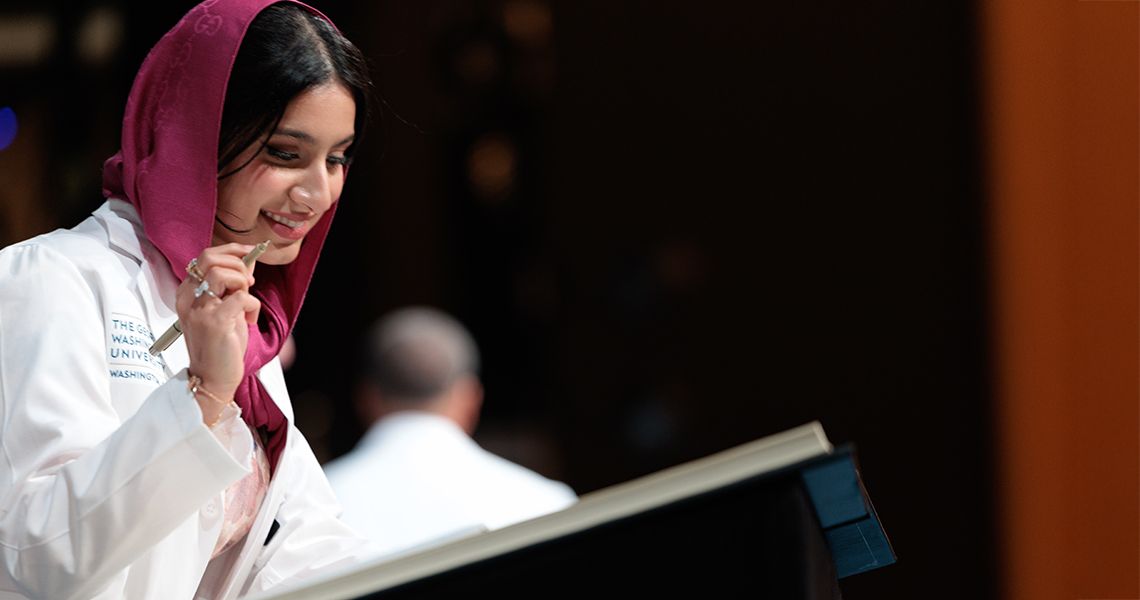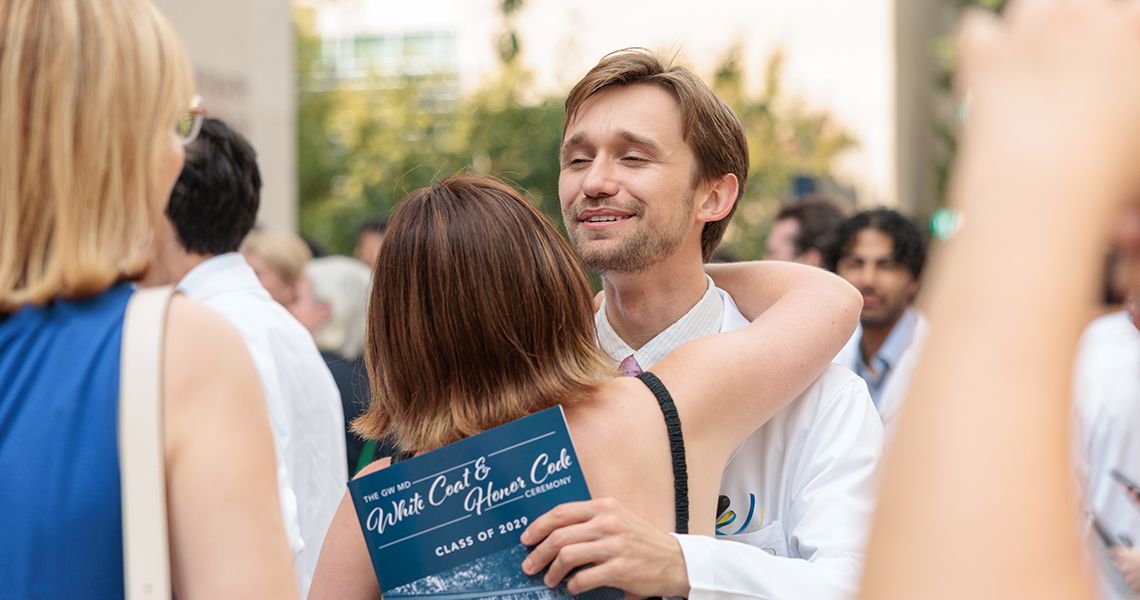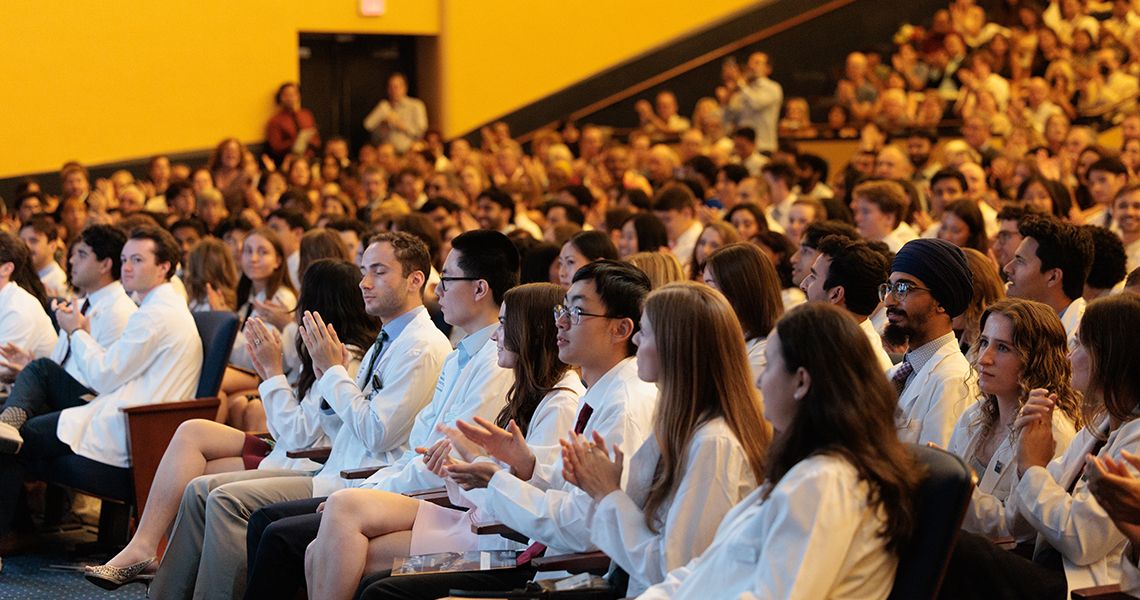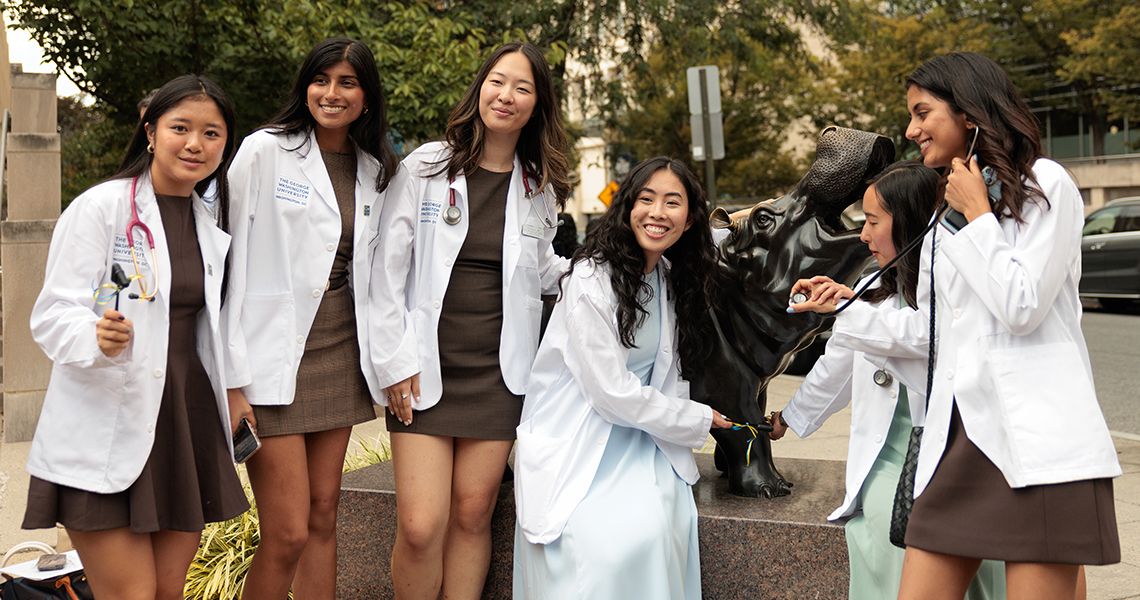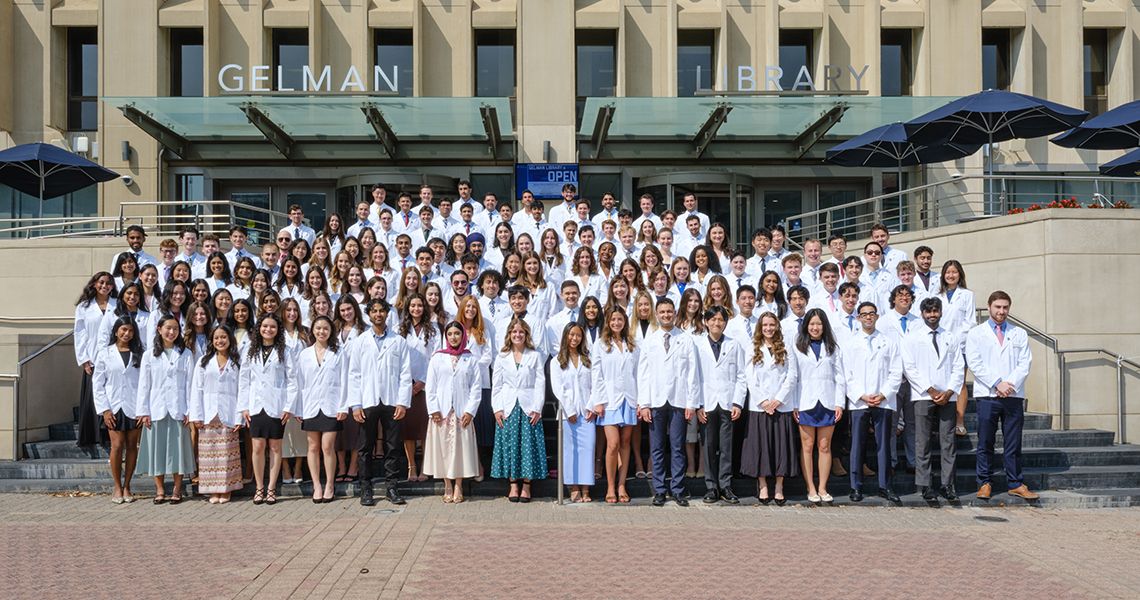The George Washington University (GW) School of Medicine and Health Sciences (SMHS) welcomed the MD Program Class of 2029, the first MD class of the school’s third century, during the 27th Annual White Coat and Honor Code Ceremony on Sept. 6 in Lisner Auditorium.
Drawn from a pool of more than 17,000 applicants, the members of the Class of 2029 arrived on GW’s Foggy Bottom campus just over a month ago with strong academic and professional credentials. Most students hold science-related undergraduate degrees and bring with them prior experience in health care and research. Sixteen students are former EMTs, 14 have published research, and the cohort includes graduates from 55 undergraduate institutions nationwide — 15 of them from GW.
Among the most solemn traditions in medical education, said Barbara Lee Bass, MD, RESD ’86, vice president for health affairs and dean at GW SMHS, Walter A. Bloedorn Chair of Administrative Medicine, and professor of surgery, is the public commitment to the profession of medicine.
“It’s a big deal, actually,” she said. “When you put on your white coat for the first time, that widely recognized uniform of being physician, you’re stating right here now in front of all of us, that you are taking on the responsibilities, burdens, and yes, that great privilege of being a physician.”
Bass acknowledged that a career in medicine inevitably brings moments of challenge and loss, but they’re also balanced by the fulfillment of service and purpose. “Medicine will reward you with an amazing joy, knowledge, wisdom, unparalleled human connection, and service to others of exceptional magnitude and personal impact. Medicine as a career is worth it.”
The event, sponsored by the GW Medical Alumni Association and the White Coat Initiative, is both a rite of passage and a symbol of the start of each student’s journey in medicine. Students received their first white coats, assisted by Dean Bass, sign the honor code, and recite the GW SMHS Oath, pledging their commitment to the profession.
A Better Sense of Strength
Fourth-year medical student and GW’s vice president of the American Medical Association chapter, Alexa Shahine, delivered this year’s student address. Reflecting on her own journey, she spoke candidly about redefining her understanding of strength during her time at GW.
The white coat, she said, “is a testament to your strength as students, making it to medical school. The strength of your support systems here, either in person or in slideshow form that we saw earlier, and the strength of the mentors and educators, both those who have gotten you here today and those that will carry you through these next four years and beyond."
Heading into medical school, Shahine believed her strength lay in the ability to deny her own needs for rest in order to focus on academics. She soon discovered the approach didn’t yield the perfect results she had hoped. She sought advice from a faculty member helped her see that what she thought was a formula for success was in fact a “recipe for burnout.”
“The place where you will show your strength,” she told the class, “is your ability to find balance. You can’t stop being a person to be a student, and you definitely can’t stop being a person and expect to be doctor.”
Where Passion Leads
Rachel Brem, MD, professor and vice chair of the Department of Radiology, and director of the GW Breast Imaging and Interventional Center, delivered the day’s keynote address. A board-certified diagnostic radiologist and renowned leader in breast cancer, Brem has built a career on integrating patient-centered care with state-of-the-art technology and research.
Widely published, Brem is the principal investigator of numerous clinical trials for the improved detection of breast cancer as well as identifying additional areas of unsuspected cancer in women with newly diagnosed breast cancer.
“I’m here to tell you, being a doctor is even better than I could have dreamed, but I didn’t start out believing this was possible,” she said.
Brem opened her remarks by sharing a pivotal movement from her childhood, when her mother was diagnosed with breast cancer, that forged her dream to become a physician and dedicate herself to battling breast cancer.
“Out of hardship can come extraordinary purpose,” she said. “What feels impossible today may very well become the thing that propels you forward.”
Highlighting lessons from her career, Brem offered several tips to guide students along their medical journeys. Among the advice, she encouraged students to pursue passion over doubt and to remain open to unexpected opportunities. “If you love it, if you believe in it, chase it. Passion and purpose will always outlast doubt.”
Brem also urged students to look for opportunities beyond medicine. As co-founder of the Brem Foundation, a nonprofit focused on early detection of breast cancer through education, access, and advocacy, she noted, “I never planned to start a nonprofit, but that’s the point. Your career will offer you opportunities to make the world better in ways that you can’t even imagine today.”
Brem finished with the need to appreciate that no one does this alone and that gratitude is key to happiness. She urged the students to thank those that helped them get here and to always thank those that teach them and most of all, their patients.
Hope and Humanism
In closing, Lorenzo Norris, MD, interim senior associate dean for MD programs and associate professor of psychiatry, offered the class words of encouragement rooted in two guiding values: hope and humanism.
“Hope,” he explained, “is action, and humanism is connection.”
As he looked out over the auditorium filled with students in their crisp new white coats. In you, he said, “I see connected action. I see movement. I see group that has chosen to be here, who is equipped to face challenges.
